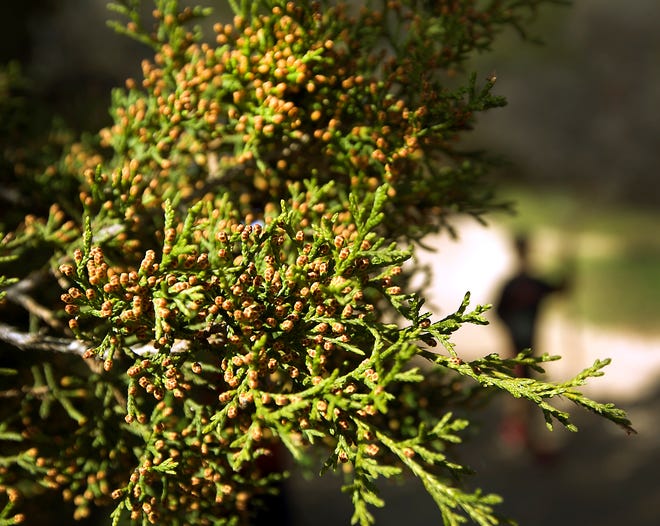On Tuesday, the Texas Senate Local Government Committee, chaired by Senator Paul Bettencourt, heard an oral public statement on House Bill 2239.
Rep. Ellen Troxclair, R-Austin, introduced the bill earlier this year to limit municipal encroachment on private removal of Ashe juniper trees.
Here are three things to know about Tuesday’s public hearing:
“Residents” vs. “Personal Residents”
As it stands, the bill would allow every residential area in Texas to remove ashe juniper and would not ban real estate developers from cutting down trees on large swathes of the state, a distinction emphasized by opponents of the bill.
Some opponents argued that the bill should be amended to read “personal occupants” instead of “residents,” which would limit the sweeping removal of ashe junipers, which currently cover millions of acres throughout central Texas. Others called for the bill to be scrapped.
Among those who opposed the bill were military personnel from Joint Base Camp Bullis, environmentalists and an eighth grader.
There were up to 20 witnesses opposing the bill, and no one testified in support of their support Tuesday, though three people were registered for the bill, all of whom were members of building associations in Dallas or Texas.
More:Ash juniper trees in Austin are protected. HB 2239 wants to change that.
Gold-cheeked warblers are also at risk
Some speakers against the bill raised concerns about its potential to circumvent the Endangered Species Act, a 1973 federal law that provides protections for a list of endangered or threatened fish, wildlife and plants. There are currently over 1,300 species on the endangered species list.
Experts warned that the extensive removal of the Ashe juniper, the main nesting site of the Golden-cheeked juniper, would further endanger the fragile Golden-cheeked juniper.
Eighth grader Lily Rerecich voiced her opposition to the bill, citing the Goldcheeksinger. She affirmed the value of the juniper as “a native tree and keystone species that provides important ecosystem services for all Texans.”
“Picking it up is misguided and hurts everyone,” she said. Rerecich’s testimony provided the historical example of the New Zealand kea parrot, whose removal by sheep farmers nearly led to its extinction. Efforts to restore the Kea parrot continue to this day.
Rerecich emphasized that in the case of Ashe juniper and warbler, “an ounce of prevention is worth a pound of cure.”
What’s next for HB 2239?
The local government committee is expected to submit the bill to the full Senate for consideration with recommended amendments, where it will undergo a final round of voting. If the legislature agrees, Gov. Greg Abbott is likely to ratify the bill and go into effect on September 1, 2023.
If the law is passed, Ashe junipers in Austin would no longer be protected under the city’s 1983 tree ordinance.
www.statesman.com
https://www.statesman.com/story/news/local/2023/05/19/texas-legislature-house-bill-2239-removal-ashe-juniper-trees-austin-central-texas/70228719007/











